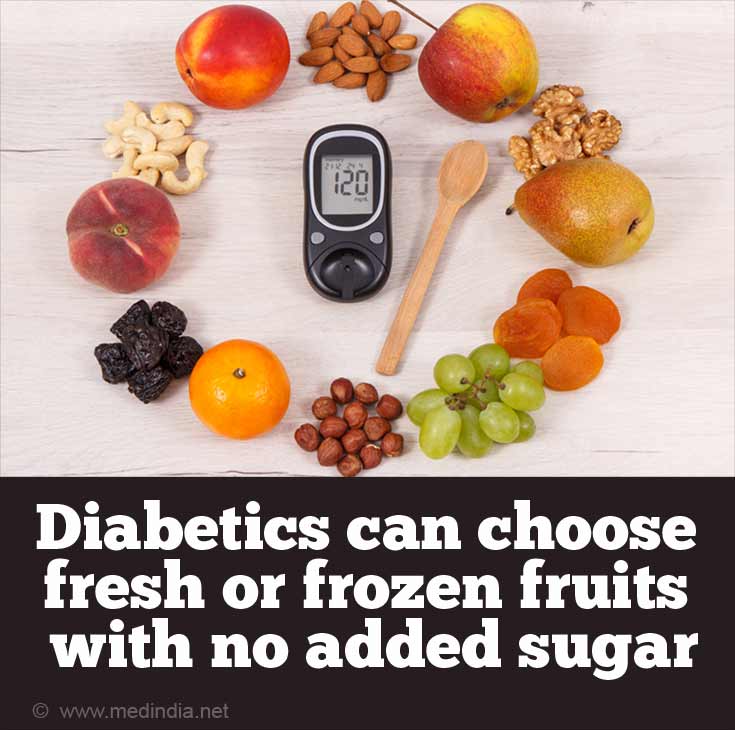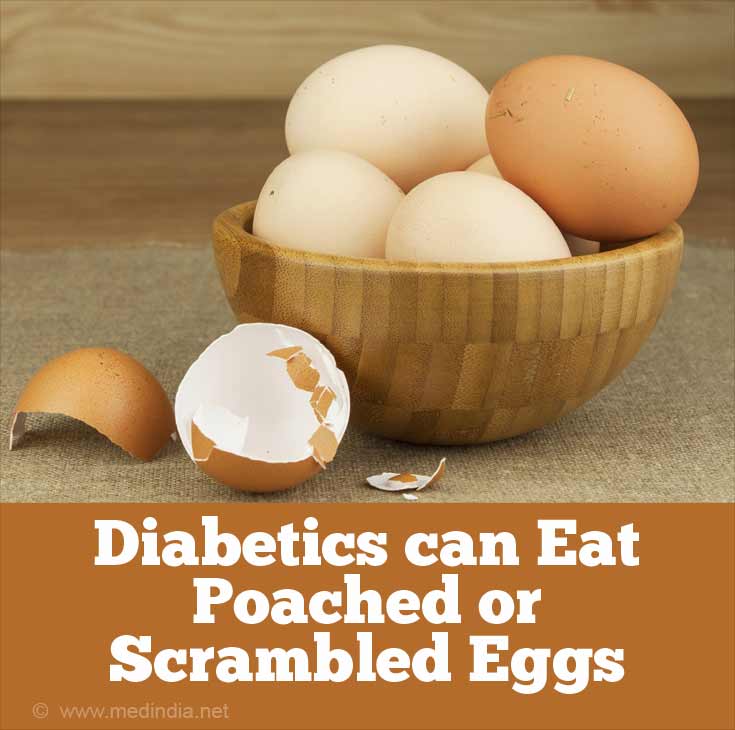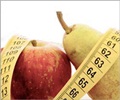- DIETARY MISCONCEPTIONS AMONG DIABETIC PATIENTS IN MAKKA CITY, SAUDI ARABIA - (http://www.ncbi.nlm.nih.gov/pmc/articles/PMC3430184/)
- Nutrition Recommendations and Interventions for Diabetes - (http://care.diabetesjournals.org/content/31/Supplement_1/S61.full)
What are the Diabetes Diet Myths?
Managing diabetes and keeping the blood sugar levels on track is easy when you watch what you eat. Diabetic patients often do not comply with dietary recommendations for various reasons. One reason may be that they have preconceived ideas about the diet to be followed.
In order to educate a diabetic, it is important to assess the common misconceptions they have about food choices. To know what to eat, proper instructions about dietary changes are crucial. Here are a few common diabetic diet myths with the facts that will give you a better idea.

Myth #1: Eating Sugar and Sugar-rich Foods Causes Diabetes
Truth: Intake of sugar and foods rich in sugar like sweets, candies, does not cause diabetes. The common causes for diabetes are insufficient insulin secretion, obesity, sedentary lifestyle and high-calorie intake. The imbalance between calorie intake and the rate at which the calories are utilized can lead to diabetes.
Myth #2: Bitter Foods Neutralize Hyperglycemia
Truth: People believe that as diabetes has to do with high blood sugar levels and so consuming foods, which are bitter like bitter gourd, fenugreek would reduce the blood glucose levels and nullify the effect in the body. There is no scientific evidence that foods, which are bitter, have such effects. Rather, foods rich in fiber and anti-oxidants have hypoglycemic property and control blood glucose levels.
Myth #3: Avoid Carbohydrates if you Have Diabetes
Truth: Carbohydrates form the basis of a healthy diabetic diet. Glucose, the simplest form of carbohydrates is the only source of energy to the brain. So, omitting carbohydrates from the daily diet is not a wise choice. Rather, choose complex carbohydrates such as whole grains, millets, high-fiber fruits, vegetables that are loaded with minerals and vitamins.
Myth #4: You Can Eat All the Protein you want, as they are Zero Carbs
Truth: Foods rich in protein such as egg, meat, poultry, cheese, have negligible carbohydrate content but that does not mean that it can be replaced for carbohydrates. Too much protein intake can lead to problems for people with diabetes. One reason is that foods rich in fat, especially the non-vegetarian sources are also rich in saturated fat. Including too much of this protein can lead to heart diseases.
So, a combination of protein and carbohydrate in every meal delays the release of glucose in the blood and increases the insulin response, avoiding sudden hikes of blood glucose levels after a meal.
Myth #5: People with Diabetes Are Not Allowed To Eat Fruits
Truth: Fruits are excellent sources of important vitamins, minerals, and dietary fiber. Eliminating a healthy carbohydrate source from the diet just because there is insufficient insulin secretion in the body is not a wise decision. One of the ways to have a check on blood sugar levels is to make sure that the portion size of foods rich in carbohydrates should be small. Choose fresh or frozen fruits with no added sugar. Always have fruits as a snack and not soon after you finish a meal.
The Dietary Guidelines for Americans recommend that per day, intake of approximately 2 cups of fruit per day. Compared to cereals or pulses, one serving of fruit has 15 grams of carbohydrates and 60 calories.

Myth #6: It is Fine for Diabetics to Drink Fruit Juice
Truth: Fruits, be it fresh, frozen or contain fiber and are more filling than fruit juices. It is a lot easier to gulp down too much juice than eat too much fruit. In addition, fruit juices are digested easily as it is a liquid and may spike blood sugar more quickly, than a solid. When digestion is faster, the rise in blood sugar is also faster. You can limit the intake of fruit juices to 4 ounces (120ml) provided they do not contain added sugars.
Myth #7: Eggs Increase Blood Cholesterol Levels
Truth: One egg approximately contains 7 grams of high-quality protein, 5 grams of fat, 1.6 grams of saturated fat, and 75 calories, along with iron, vitamins, minerals, and carotenoids. People with diabetes can eat a few eggs a week depending on the risk of cardiovascular disease.
Though, an egg contains 213mg of cholesterol, research has proved that saturated fat is more fatal leading to heart diseases by increasing blood cholesterol levels. The way you prepare eggs also matters. The best way to cook eggs is to scramble in a non-stick pan, using a healthy liquid oil or oil spray, or poach them in water.

Myth #8: Diabetics can’t Have Starchy Vegetables like Potatoes, Carrot, Beetroot
Truth: Vegetables can be grouped as roots, tubers, green leafy vegetables, non-starchy vegetables. People with diabetes can use a combination of vegetables in one dish. Balancing is the key. Potatoes, a starchy vegetable can be balanced with non-starchy vegetables such as a lettuce salad, green beans, or broccoli.
Potatoes contain potassium higher than that in bananas, dietary fiber and vitamin C. Likewise, beetroot and carrot contain anti-oxidants, which protect the cell from damage. Instead of potato chips or mashed potatoes loaded with butter and sour cream, baked and boiled potatoes are healthier methods of cooking potatoes.
Myth #9: Eating Frequently Increases Blood Sugar Levels
Truth: Small frequent meals throughout the day boosts metabolism and releases the digested food as glucose into the blood. Since a load of glucose released into the blood is low, the insulin finds it easier to push them into the cells for energy production. This is called glycemic load.
Balancing the entire day’s food into smaller meals would be a wise decision if you have the right choice of foods. Prefer whole grain foods, fruits, sprouts, legumes, nuts, and salads for smaller meal options as they are satiating than a carbohydrate-rich snack.
Cutting down on portion size is easy when you break up your meal into two small ones. The blood glucose levels do not shoot up when you eat little by little.
These are some of the common myths that any person would come across, especially when a person is diagnosed as diabetic. It is time to understand that a balance of foods including cereals, pulses, fruits, vegetables, fats and meat is required to stay healthy. A combination of nutrients acquired from these food sources keeping in mind that portion control, cooking method and the frequency of intake can help you keep going.










